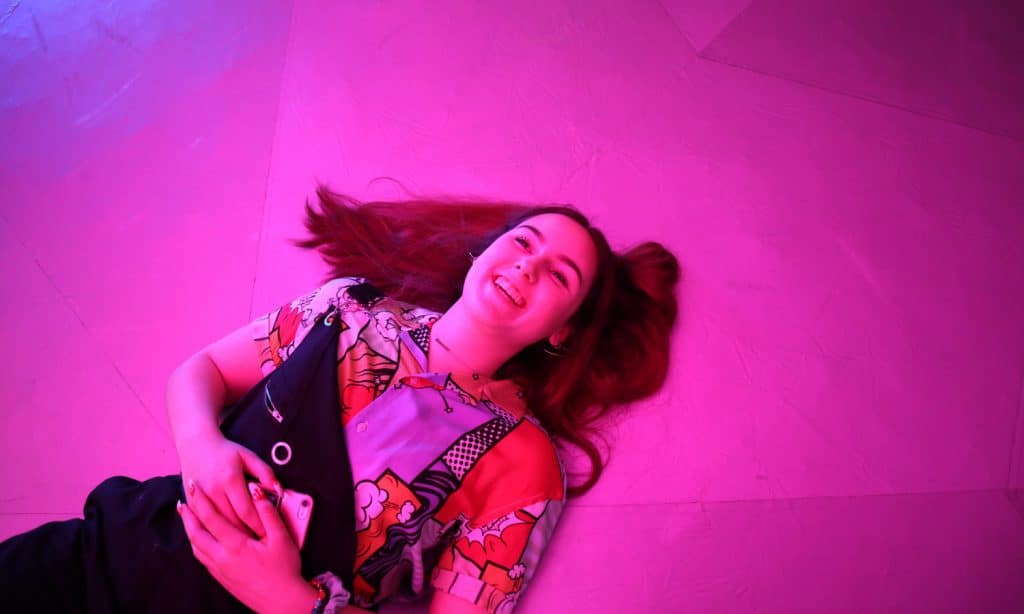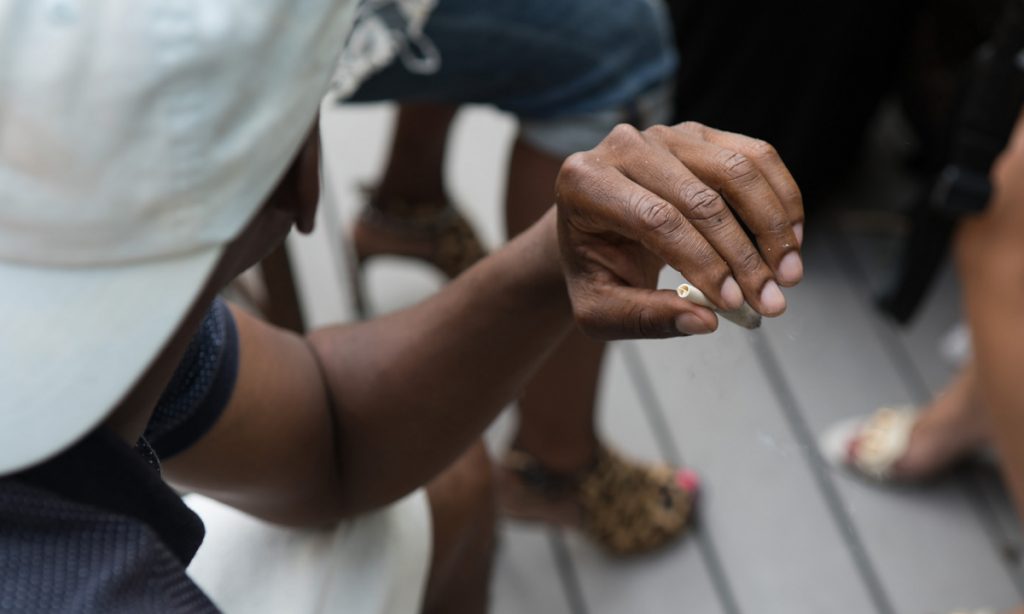Many cannabis consumers have a story about someone who tried cannabis for the first time and literally thought they were losing their minds. Were they tripping?
Cannabis is a strange, complex plant that researchers are still trying to figure out. Now they are saying that there is an element of a psychedelic experience involved with consuming the plant, but are not entirely sure how and why that happens.
The plant has more than 60 cannabinoid compounds (including CBGA, or cannabigerolic acid; THCA, or tetrahydrocannabinolic acid), some of them with opposing effects, with not all of their interactions understood. As a result, cannabis consumption affects people in different ways depending on these interactions (and especially because of the strength of the THC content), along with the genes and personality characteristics of the consumer.
Like caffeine, cannabis is a psychoactive drug, meaning it affects cognition, consciousness, mood and emotions. Since it does affect these areas of the central nervous system, it can evoke certain new ways of thinking that matches the effects of LSD—though at generally a much lower level.
Many cannabis consumers have a story about someone who tried cannabis for the first time and literally thought they were losing their minds. They were seeing things, reaching out for floating objects that were not there, got dizzy and began vomiting—all after just one or two hits from a joint.
Yes, they were tripping on cannabis.
When someone consumes cannabis, it interacts with a neurotransmitter receptor in the brain that creates the (mostly pleasant) effects. But there is more to it, because that neurotransmitter interacts with other neurotransmitter systems in the brain, resulting in unexpected pharmacological effects, according to a 2012 study published in the journal Therapeutic Advances in Psychopharmacology.
RELATED: Researchers Tricked People Into Hallucinating From Fake Psychedelics
Most marijuana that is available for both medical and recreational consumption contains a combination of THC and CBD. The psychedelic experience seems to be more related to the THC.
Researchers found that THC caused transient psychotic symptoms and increased the levels of anxiety, intoxication and sedation of a consumer, whereas CBD had no significant effect on those behaviors.

A 2018 study published in the journal Cannabis and Cannabinoid Research reported that cannabis has been historically classified as a hallucinogen, but that subjective cannabis effects do not typically include hallucinogen-like effects. “Empirical reports of hallucinogen-like effects produced by cannabis in controlled settings, particularly among healthy research volunteers, are rare and have mostly occurred after administration of purified THC rather than whole plant cannabis.”
The study went on to discuss the case of a healthy 30-year-old male who had auditory and visual hallucinations in a controlled laboratory study after inhaling vaporized cannabis that contained 25 milligrams of THC. The “trip” lasted about 90 minutes, and the volunteer was “functionally incapacitated.”
RELATED: What is THC? A Beginner’s Guide To Marijuana’s Psychoactive Cannabinoid
The hallucinatory experience in this case was different than the effects of classic psychedelics like LSD and psilocybin, according to results of the study, suggesting that the hallucinatory effects of cannabis may have a unique pharmacological mechanism of action.
Other advocates, such as author Steven Gray, describe cannabis as a “spiritual ally” that can create “ego dissolution,” which is a major effect of psychedelics that contributes to a sense of peace and connectedness. He leads cannabis meditation sessions to explore that relationship.
Some cannabis consumers say that LSD is like “weed times a million.” Consumers report a more “psychedelic-like” reaction to smoking the flower from certain strains with generally higher levels of THC (such as Amnesia Haze, Headband, Durban Poison), but even more so with concentrates and edibles that can have as much as 70-90 percent THC content (oils, sugars, live resins, waxes).
As the cannabis industry grew and became more accessible to first-timers, people experiencing an edible often consumed much more than the suggested amount, leading to “trip” like experiences and emergency room visits. That has led to a common refrain from cannabis concentrate makers: Go low (THC level), go slow (eat only the suggested amount).
So there is a difference about the experience between LSD and cannabis, and both can be called psychedelic. But there exists a more fine-tuning of that term.
“The term ‘psychedelic’ itself is not related to a chemical structure of a compound,” noted Brad Burge, director of strategic communications for Santa Cruz-based Multidisciplinary Association for Psychedelic Studies (MAPS) in an article on their website. When it comes to psychedelic drugs, “most of them have little, if anything, in common chemically,” he wrote. What they do all have in common is their ability to “bring up the contents of the mind,” whether that’s subconscious thoughts or repressed traumatic memories, Burge wrote.

While cannabis can be used in related ways, such as augmenting a meditation practice or sparking creativity, Burge wrote that the plant is mostly used in ways similar to alcohol or nicotine: It “smooths over symptoms that people are having.”
RELATED: What Is Marijuana’s THCA And What Does It Do For You?
Another important distinction between cannabis and psychedelics is the way in which they’re used in therapy. Whereas psilocybin, the chemical in magic mushrooms, is used to enhance therapy, it’s not the treatment in and of itself. “The goal is getting at the root of people’s problems,” Burge wrote. Cannabis, on the other hand, mostly treats symptoms.
So cannabis be a trippy experience, depending on your definition of trippy. But like with many things related to how cannabis operates inside the human endocannabinoid system—which has been implicated in a growing number of physiological functions, both in the central and peripheral nervous systems and in peripheral organs—the jury is still out.


